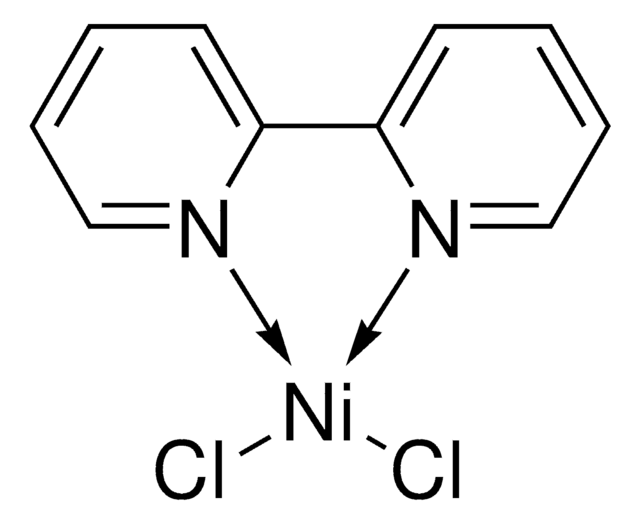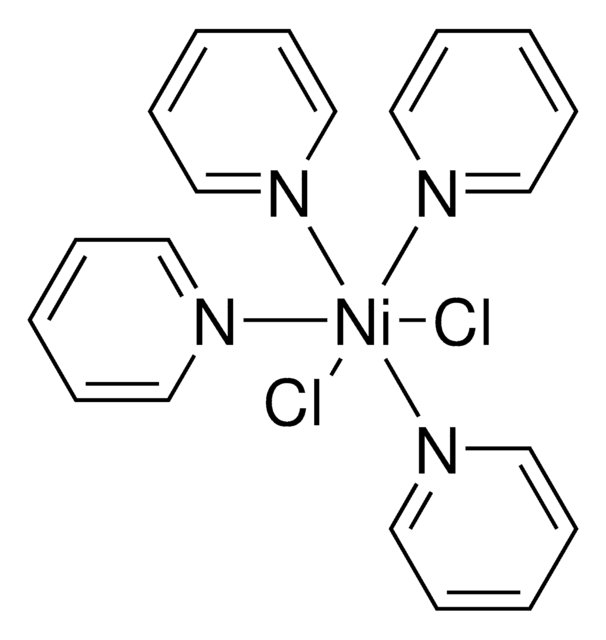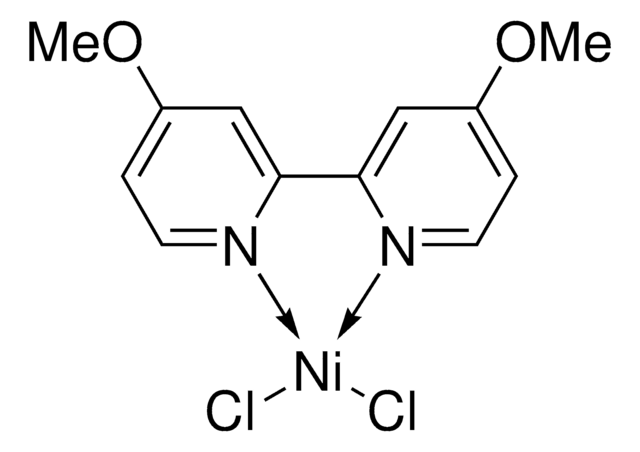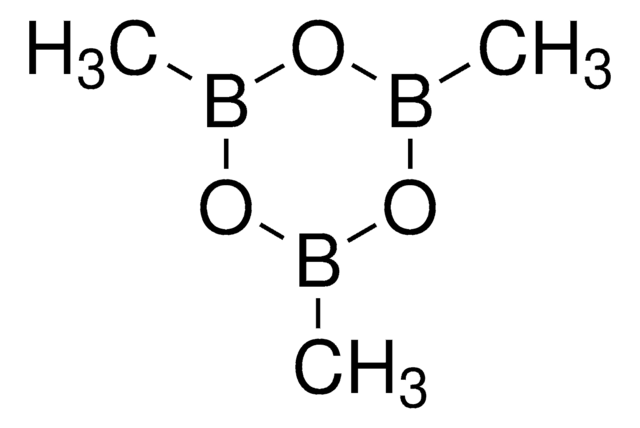904937
2,6-Bis(N-pyrazolyl)pyridine nickel (II) dichloride
≥95% anhydrous basis
Synonym(s):
(bpp)NiCl2
Sign Into View Organizational & Contract Pricing
All Photos(2)
About This Item
Empirical Formula (Hill Notation):
C11H9Cl2N5Ni
CAS Number:
Molecular Weight:
340.82
UNSPSC Code:
12352101
NACRES:
NA.22
Recommended Products
Assay
≥95% anhydrous basis
form
powder or crystals
reaction suitability
core: nickel
reaction type: Cross Couplings
reagent type: catalyst
mp
107.9-132.4 °C (Decomp)
Application
2,6-Bis(N-pyrazolyl)pyridine nickel (II) dichloride ((bpp)NiCl2) is a Ni precatalyst that can be used in Negishi alkyl-alkyl cross-coupling, reductive cross-coupling of styrenyl aziridines, and dialkyl ether formation.
related product
Product No.
Description
Pricing
Storage Class Code
11 - Combustible Solids
WGK
WGK 3
Flash Point(F)
Not applicable
Flash Point(C)
Not applicable
Certificates of Analysis (COA)
Search for Certificates of Analysis (COA) by entering the products Lot/Batch Number. Lot and Batch Numbers can be found on a product’s label following the words ‘Lot’ or ‘Batch’.
Already Own This Product?
Find documentation for the products that you have recently purchased in the Document Library.
Customers Also Viewed
Nickel-Catalyzed Negishi Cross-Couplings of Secondary Nucleophiles with Secondary Propargylic Electrophiles at Room Temperature.
Smith SW and Fu GC
Angewandte Chemie (International ed. in English), 47(48), 9334-9336 (2008)
Nickel-catalyzed enantioselective reductive cross-coupling of styrenyl aziridines.
Woods BP, et al.
Journal of the American Chemical Society, 139(16), 5688-5691 (2017)
Dialkyl Ether Formation by Nickel-Catalyzed Cross-Coupling of Acetals and Aryl Iodides.
Arendt KM and Doyle AG
Angewandte Chemie (International Edition in English), 54(34), 9876-9880 (2015)
Brian P Woods et al.
Journal of the American Chemical Society, 139(16), 5688-5691 (2017-04-14)
A Ni-catalyzed reductive cross-coupling of styrenyl aziridines with aryl iodides is reported. This reaction proceeds by a stereoconvergent mechanism and is thus amenable to asymmetric catalysis using a chiral bioxazoline ligand for Ni. The process allows facile access to highly
Our team of scientists has experience in all areas of research including Life Science, Material Science, Chemical Synthesis, Chromatography, Analytical and many others.
Contact Technical Service![[4,4′-Bis(1,1-dimethylethyl)-2,2′-bipyridine] nickel (II) dichloride](/deepweb/assets/sigmaaldrich/product/structures/471/091/6faa29b1-bf8a-4d87-90b2-4cc55e082620/640/6faa29b1-bf8a-4d87-90b2-4cc55e082620.png)










![[(TMEDA)Ni(o-tolyl)Cl] 95%](/deepweb/assets/sigmaaldrich/product/structures/236/439/768c916e-994f-47e3-a980-3ca0471317d7/640/768c916e-994f-47e3-a980-3ca0471317d7.png)
![[1,3-Bis(diphenylphosphino)propane]dichloronickel(II)](/deepweb/assets/sigmaaldrich/product/structures/844/065/af07f787-c6a3-4a6e-a22b-47a933c73978/640/af07f787-c6a3-4a6e-a22b-47a933c73978.png)

![[1,1′-Bis(diphenylphosphino)ferrocene]dichloronickel(II) 97%](/deepweb/assets/sigmaaldrich/product/structures/274/566/a60d6584-163a-4c41-a738-60f8e4d524fa/640/a60d6584-163a-4c41-a738-60f8e4d524fa.png)